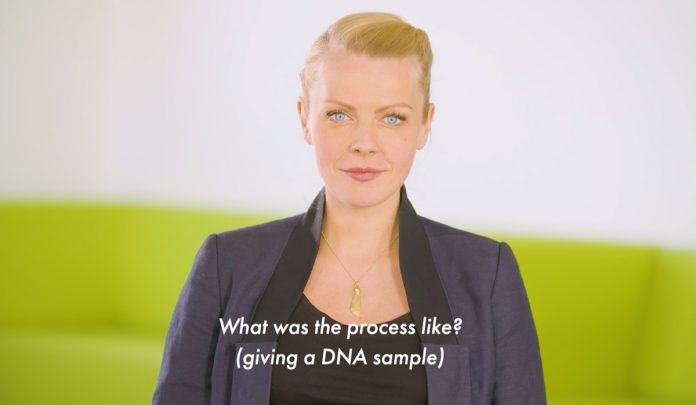
Professors Darren K Griffin and Alan R Thornhill discuss their research on exploring a person’s genome sequencing
“Everybody is identical in their secret unspoken belief that way deep down they are different from everyone else,” said David Foster Wallace.
This may well be true from a genomic point of view. Most of us know that we are comprised of cells, trillions of them, and within each nucleus of each cell is DNA, and the DNA encodes our genome.
Our genome is many things: It is the sum total of all our genes, it codes for the proteins that drive the chemical reactions in our bodies and the structures that keep us upright. It is the blueprint that sketches out aspects of our appearance, our health and our behaviour; it contains shadows of our evolutionary past. There are also many things that our genome is not. It is neither an un-editable script for our life, nor is it a list of pre-determined events that set us on a specific path. Like any blueprint, it is no more than an outline, a plan for what might be.
But what happens when our genome is sequenced? How do we interpret this overwhelming mass of information and the implications for our health, wellbeing and identity?
Many countries have launched large studies to investigate genome sequencing. In the UK, the 100,000 genomes project aims to better understand the genetic basis of specific conditions including cancer, cardiac and rare disease by comparing whole genomes from large numbers of people. This is an ongoing project, which is set to transform medicine by integrating a genomics approach to diagnosis and therapy; providing a much-needed personalised approach to give individual patients the most appropriate care.
Whilst a database of 100,000 genomes develops our understanding of population genetics, it doesn’t tell the personal stories of genome sequencing. We sequenced the genomes of 10 healthy individuals to identify any useful genomic information that might elicit a preventative approach to their future health needs, and filmed their expectations and reactions to their results.
We called this ambitious project: Love My Genome because, like family, you don’t get to choose your genome. The participants agreed to share their experiences to help others better understand what it means to discover your genetic makeup – including both the insights and current limitations.
As with any small-scale project, the results could easily have been underwhelming – ‘boring genomes, nothing to see here’ – and for some of us, this was true. For others, the results were anything but boring, and were profound in their implications.
In filming our thoughts, reactions and feelings towards both the process and the results, the issues of privacy, the importance of family history, our future health, and the health of our children were all revealed.
What became clear was that interpreting the ‘whole genome’ in its entirety is simply an impossible task. For starters, what we understand to mean a ‘whole genome’ today is very different from what it meant twenty years ago when the first whole human genome sequences were published.
In only a few years’ time, we are likely to know much more than we do today, so it is important to see one’s genome as an evolving resource, some of which will have importance and significance today whilst other information may be beneficial only when sufficient research is available to put the results into a meaningful context.
Furthermore, even the most eminent molecular biologist will focus on their own specific area of expertise and view their genome through a narrow lens according to their own expectations and concerns. There is a gene on chromosome 1 (RPA1) that, when mutated, can cause tunnel vision in the literal sense – retinitis pigmentosa. In many ways, even the most educated of us can have an aspect of tunnel vision when it comes to our own lives.
In the film, one participant speaks of a change in her attitude towards sun exposure based on an increased risk of melanoma (aggressive skin cancer). By her own admission, it took a genetic test result to take this risk seriously, despite having pale skin, blue eyes and blonde hair. Her husband’s test results revealed lactose intolerance which very clearly explained his immense discomfort when drinking milk and has steered him in the direction of non-dairy alternatives.
Of more direct clinical consequence were two other stories that focussed on breast cancer risk. We hear from a mother of four relieved to discover no specific cancer mutations in her genome, despite losing her own mother to breast cancer at the age of 60. The other side of this coin sees a father of three discovering a paternally inherited BRCA1 mutation, which, along with increased risk of breast, prostate and pancreatic cancers for himself, could have significant implications for his adult daughters.
While a challenging result for this family (especially since those same daughters lost their mother to breast cancer at the age of just 44) comprehensive screening and timely therapeutic intervention could save their lives should they too have inherited the mutation. These two contrasting results could both be considered good news stories if the information provided is used wisely.
The final twist in the tale is this: This particular group of unrelated healthy individuals were all invited to participate because they have specific expertise in the world of genomics. They range from genetics professors to clinical scientists specialising in genetic screening; from a biotech developer to a lawyer who specialises in reproduction and genetics.
Michael Gove famously said: “I think the British people have had enough of experts.”
Our own experts discovered the need to reach beyond their expertise when confronted with life-changing information that could impact them, their families and their futures.
Darren K Griffin
Professor of Genetics
University of Kent, School of Biosciences
Tel: +44 (0)779 302 8711
https://www.kent.ac.uk/biosciences/people/1244/griffin-darren
www.twitter.com/darrenkgriffin
Alan R Thornhill
Honorary Professor
Reproductive Genetics
Igenomix UK Ltd and University of Kent
*Please note: This is a commercial profile










